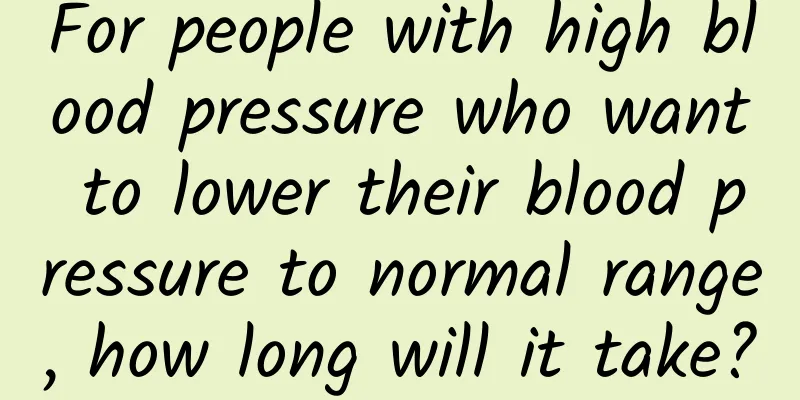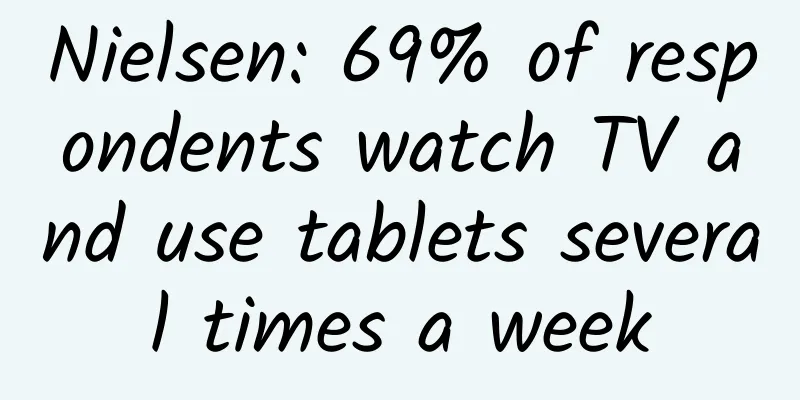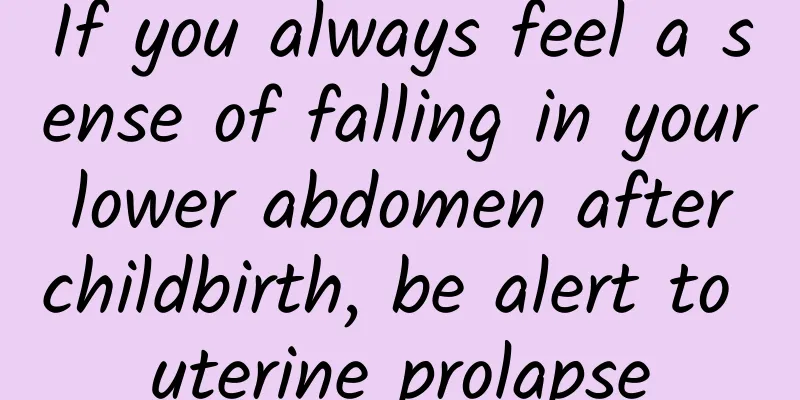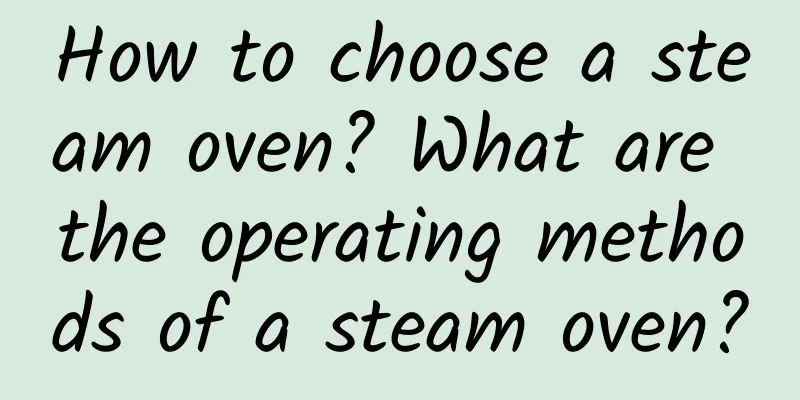For people with high blood pressure who want to lower their blood pressure to normal range, how long will it take?

|
A friend was just diagnosed with high blood pressure and told Huazi that he wanted to lower his blood pressure quickly. Is there any antihypertensive drug that can cure the disease immediately? Huazi told his friend that the question he raised was a misunderstanding of high blood pressure. The treatment of high blood pressure should not pursue the speed of lowering blood pressure, but should control blood pressure steadily. Drugs that lower blood pressure quickly are usually only used under medical supervision to treat hypertensive crisis, but they are not recommended for personal use as this can easily lead to danger. 1. Rapid blood pressure reduction can easily induce danger. Among antihypertensive drugs, there are short-acting antihypertensive drugs, which can be taken directly orally or sublingually, and can quickly lower blood pressure within 30 minutes. But for patients with hypertension, such a rapid blood pressure reduction is very dangerous. Because when blood pressure drops suddenly, it will reflexively cause sympathetic nerve excitement through the feedback system, increase heart rate, and may induce serious arrhythmias, angina pectoris, and even serious diseases such as myocardial infarction and cerebral infarction. Only when the blood pressure exceeds 180/110 mmHg and the patient has severe heart, brain, and kidney damage, and has severe headaches, angina pectoris, nausea, vomiting, angina pectoris, renal failure, heart failure and other complications, does it need to lower blood pressure as soon as possible. However, in this case, antihypertensive drugs are usually administered intravenously to control blood pressure below 160/100 mmHg, and then oral antihypertensive drugs are used to continue to lower blood pressure. 2. Normal blood pressure reduction should be slow rather than fast. In actual treatment, if the blood pressure of hypertensive patients does not exceed 180/110 mmHg, do not rush to reduce blood pressure. You should start with a small dose of oral long-acting antihypertensive drugs, and use 2 to 4 weeks to slowly reduce blood pressure to normal range to avoid the danger of too fast blood pressure reduction. Elderly hypertensive patients have a lower tolerance to blood pressure fluctuations, and it may take about 3 months to reduce blood pressure to normal range. For elderly patients with high initial blood pressure, there is no need to force it to return to normal blood pressure within 3 months. As long as the blood pressure drops by 20/10 mmHg within 3 months, it is acceptable. 3. Basic principles for choosing antihypertensive drugs 1. Start with a small dose: It is recommended to start taking antihypertensive drugs from the minimum therapeutic dose. Different people have different sensitivities to antihypertensive drugs. Starting with a small dose can reduce the incidence of hypotension and adverse reactions. After taking the drug for 2 to 3 weeks, adjust the dose according to the changes in blood pressure. 2. Combination therapy: For people whose initial blood pressure exceeds 160/100 mmHg, it is difficult to control blood pressure by taking only one drug. You can consider using two or more antihypertensive drugs to form a combined treatment plan. This can avoid the use of large doses of a single drug and utilize the synergistic and complementary effects between drugs to reduce the occurrence of adverse reactions. 3. Choose long-acting antihypertensive drugs: Choose antihypertensive drugs that can be taken once a day. Short-acting antihypertensive drugs are not recommended to avoid the danger of lowering blood pressure too quickly. However, it should be noted that long-acting antihypertensive drugs take a long time to achieve a stable antihypertensive effect. For example, long-acting dihydropyridine drugs take 7 to 10 days; pril drugs and sartan drugs take 3 to 6 weeks. It is necessary to observe the corresponding time after taking the medicine to determine the effect of the medicine and make adjustments. 4. Individualized medication: In antihypertensive treatment, each patient's condition is different and requires individualized medication. For example, patients with coronary heart disease need to use levofloxacin to reduce heart rate; patients with heart failure need to use diuretics to reduce water and sodium retention; patients with renal insufficiency need to use pril drugs or sartan drugs to protect the kidneys, etc. Therefore, it is not recommended for patients to recommend drugs to each other. Doctors need to develop individualized medication plans based on actual conditions. To sum up, during antihypertensive treatment, short-acting antihypertensive drugs can achieve the antihypertensive effect of "curing the disease with medicine", but it is not recommended because rapid blood pressure reduction may lead to serious adverse reactions and induce cardiovascular and cerebrovascular accidents. During antihypertensive treatment, the speed of blood pressure reduction should be slow rather than fast. When taking medicine, you should be guided by a doctor and choose the antihypertensive drug that suits you within the principles of medication. If you have any questions about medication, you should consult a doctor and a pharmacist. I am pharmacist Huazi. Welcome to follow me and share more health knowledge. |
<<: Why does fresh gluten taste sour? Can gluten be fried and eaten?
>>: What are the benefits of hot springs on hot days? How long should you go to a hot spring?
Recommend
Uterine fibroids appeared after moxibustion
Uterine fibroids are the most common malignant tu...
What is the matter with vaginal tofu dregs
Women's health issues are relatively hot topi...
Understand "World Traditional Medicine Day" in 80 seconds!
I am Dongdongmiao. World Traditional Medicine Day...
Why does my period come twice a month?
Now many women report that they sometimes have th...
What is the smell of lochia?
The reason why lochia smells bad is that it is ma...
Separate food and chopsticks but not love, let’s have a civilized dining table with “Chopsticks”!
For a period of time, eating together has been a ...
What causes delayed menstruation?
Women nowadays are under great pressure in life a...
Is biochemical pregnancy a false pregnancy?
It turns out that false pregnancy is not a real p...
What should I do if my progesterone level is only over 2?
The progesterone level in a woman's body afte...
What are the precautions for induced abortion in summer?
Induced abortion surgery is mainly a surgery to t...
Maintenance methods for 20-year-old women
Many 20-year-old women may think that they are st...
Should girls shave their private parts?
Female pubic hair, like other hair on the human b...
Prevention of pneumonia in inpatients of psychiatric hospitals
Speaking of pneumonia, I believe many people are ...









